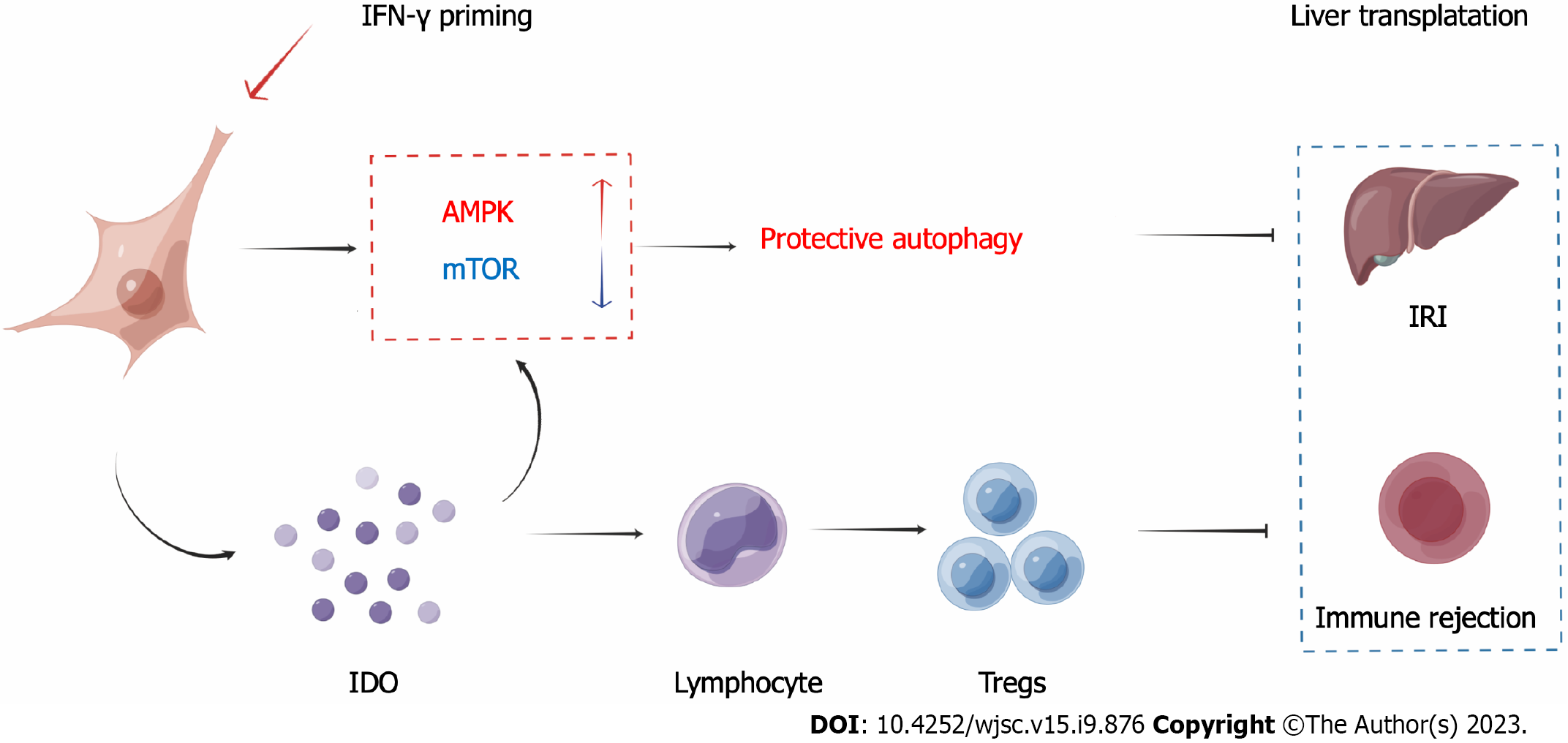Copyright
©The Author(s) 2023.
World J Stem Cells. Sep 26, 2023; 15(9): 876-896
Published online Sep 26, 2023. doi: 10.4252/wjsc.v15.i9.876
Published online Sep 26, 2023. doi: 10.4252/wjsc.v15.i9.876
Figure 9 Schematic depiction of the mechanism.
Ischemia-reperfusion injury (IRI) and immune rejection are two important factors that affect the prognosis of liver transplantation. After priming menstrual blood-derived stromal cells (MenSCs) with interferon-γ, the MenSCs secreted high levels of indoleamine 2,3-dioxygenase (IDO). On the one hand, MenSCs and IDO enhanced the AMPK-mammalian target of rapamycin-autophagy axis to reduce IRI; on the other hand, IDO promoted the differentiation of lymphocytes into Tregs to reduce immune rejection. IRI: Ischemia-reperfusion injury; MenSCs: Menstrual blood-derived stromal cells; IFN-γ: Interferon-γ; IDO: Indoleamine 2,3-dioxygenase; AMPK: AMP-activated protein kinase signaling pathway; mTOR: Mammalian target of rapamycin signaling pathway; Tregs: Regulatory T cells.
- Citation: Zhang Q, Zhou SN, Fu JM, Chen LJ, Fang YX, Xu ZY, Xu HK, Yuan Y, Huang YQ, Zhang N, Li YF, Xiang C. Interferon-γ priming enhances the therapeutic effects of menstrual blood-derived stromal cells in a mouse liver ischemia-reperfusion model. World J Stem Cells 2023; 15(9): 876-896
- URL: https://www.wjgnet.com/1948-0210/full/v15/i9/876.htm
- DOI: https://dx.doi.org/10.4252/wjsc.v15.i9.876









